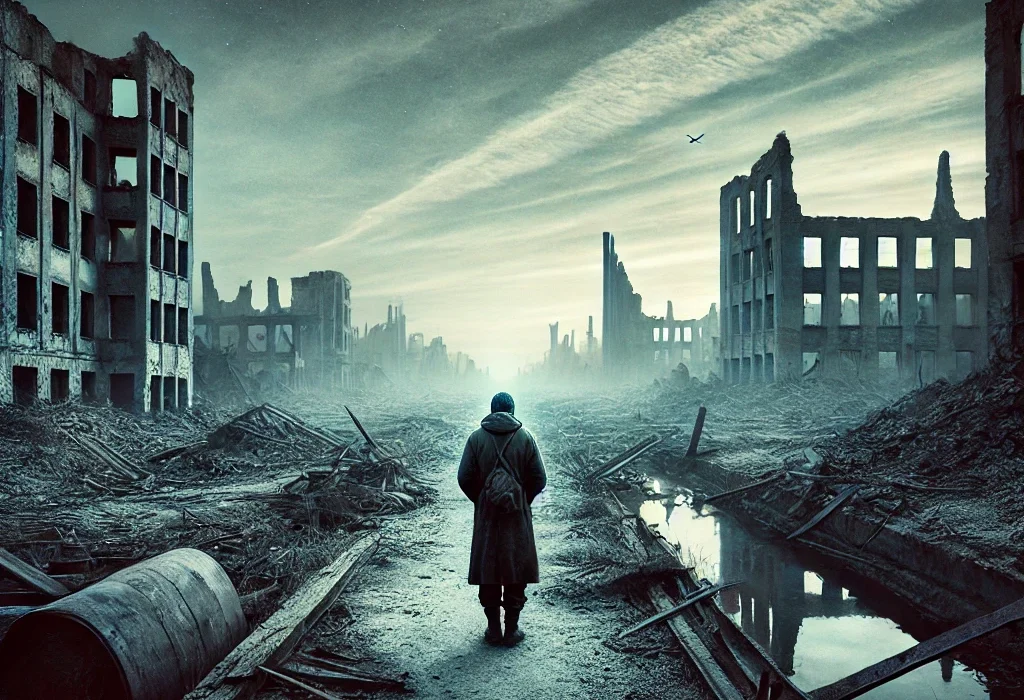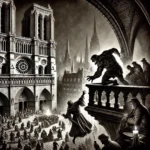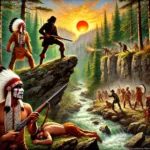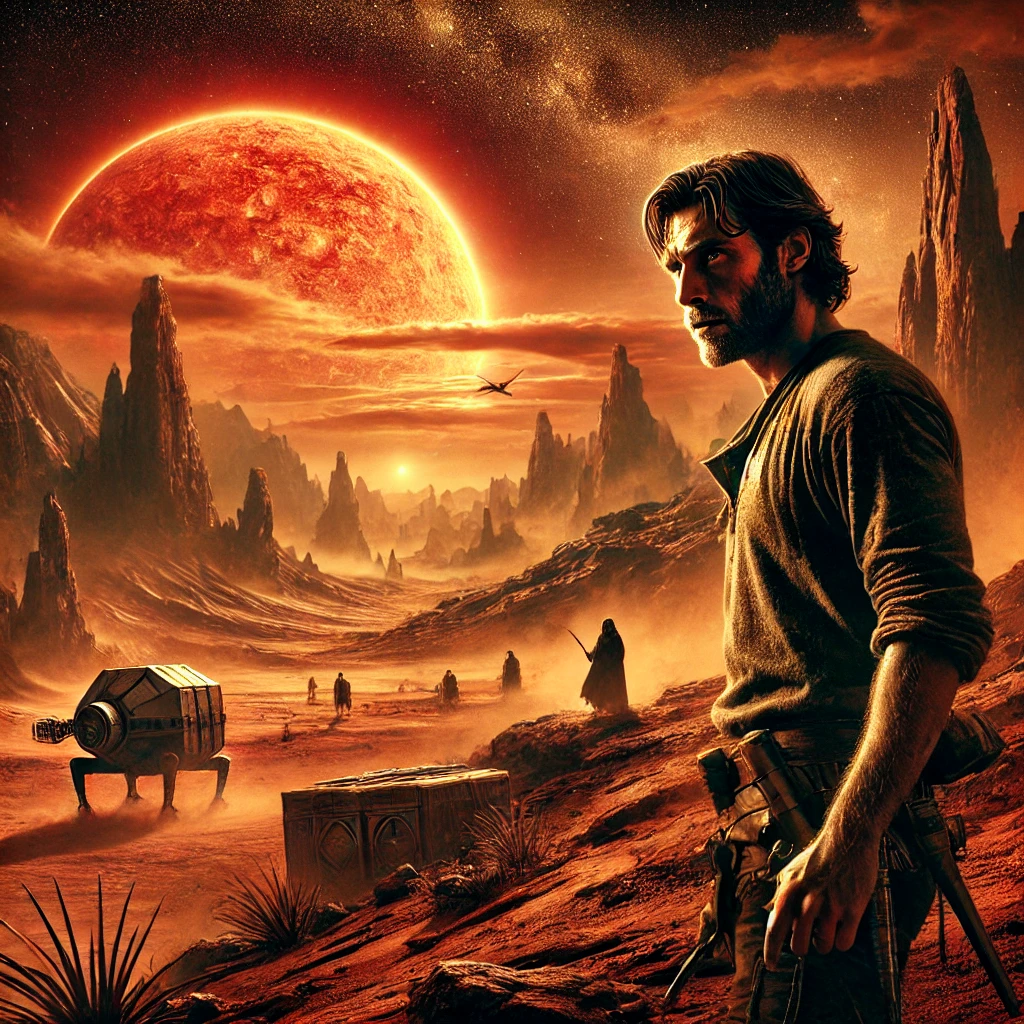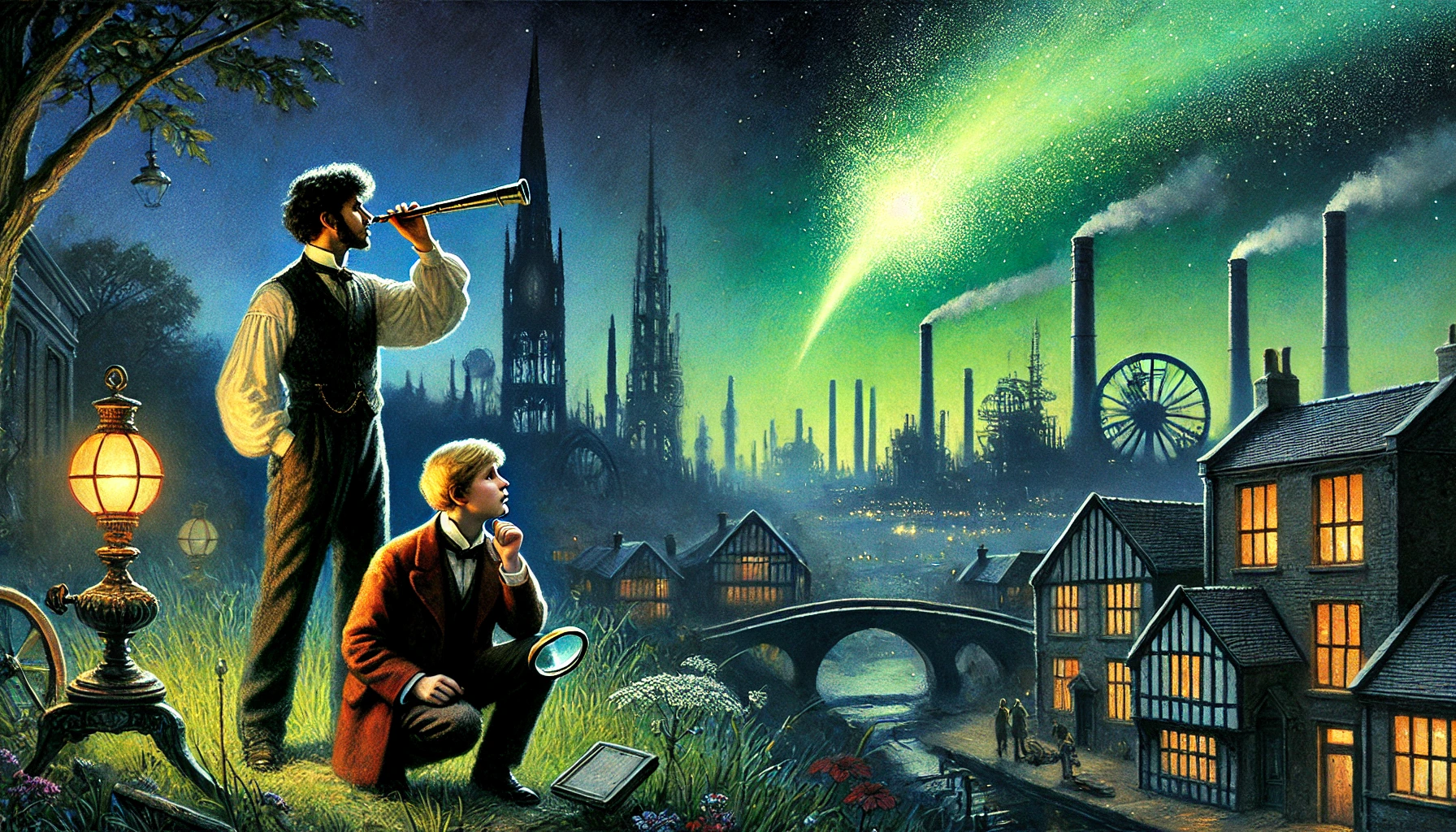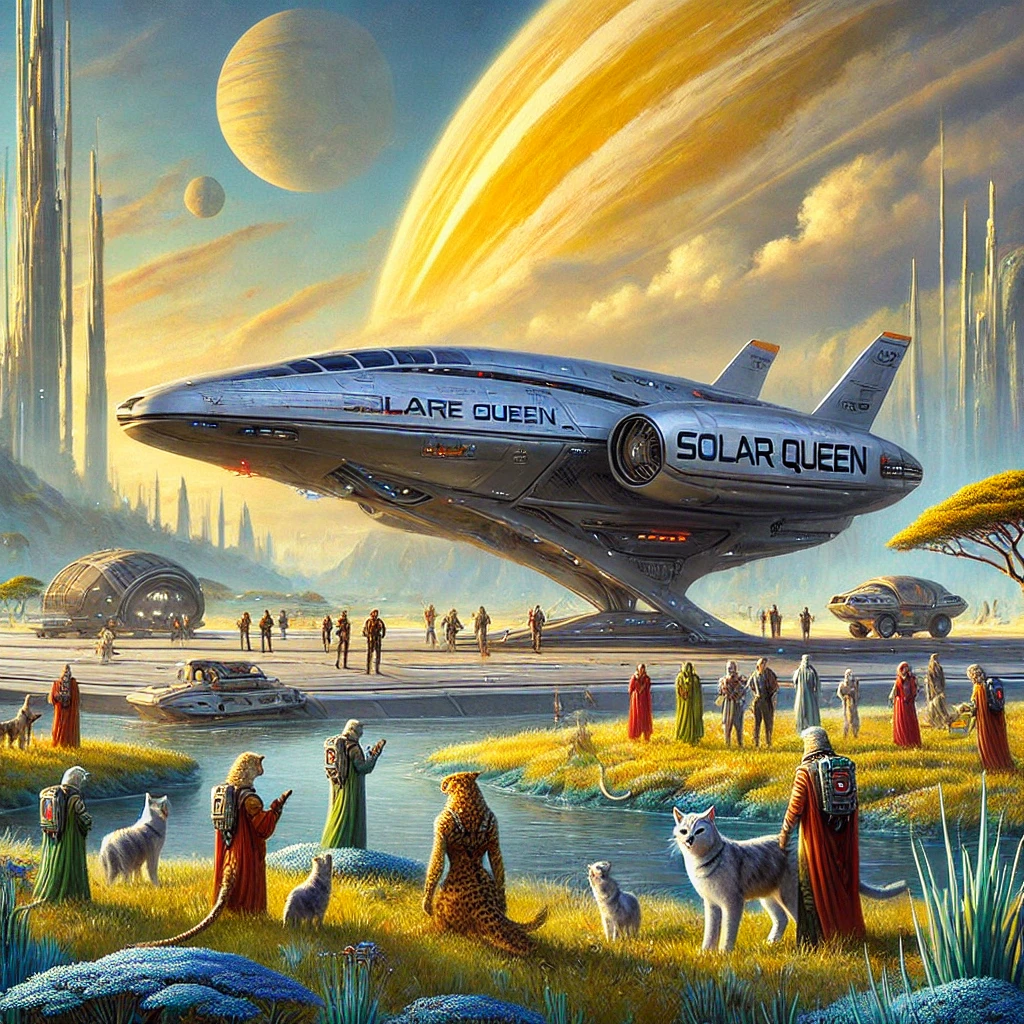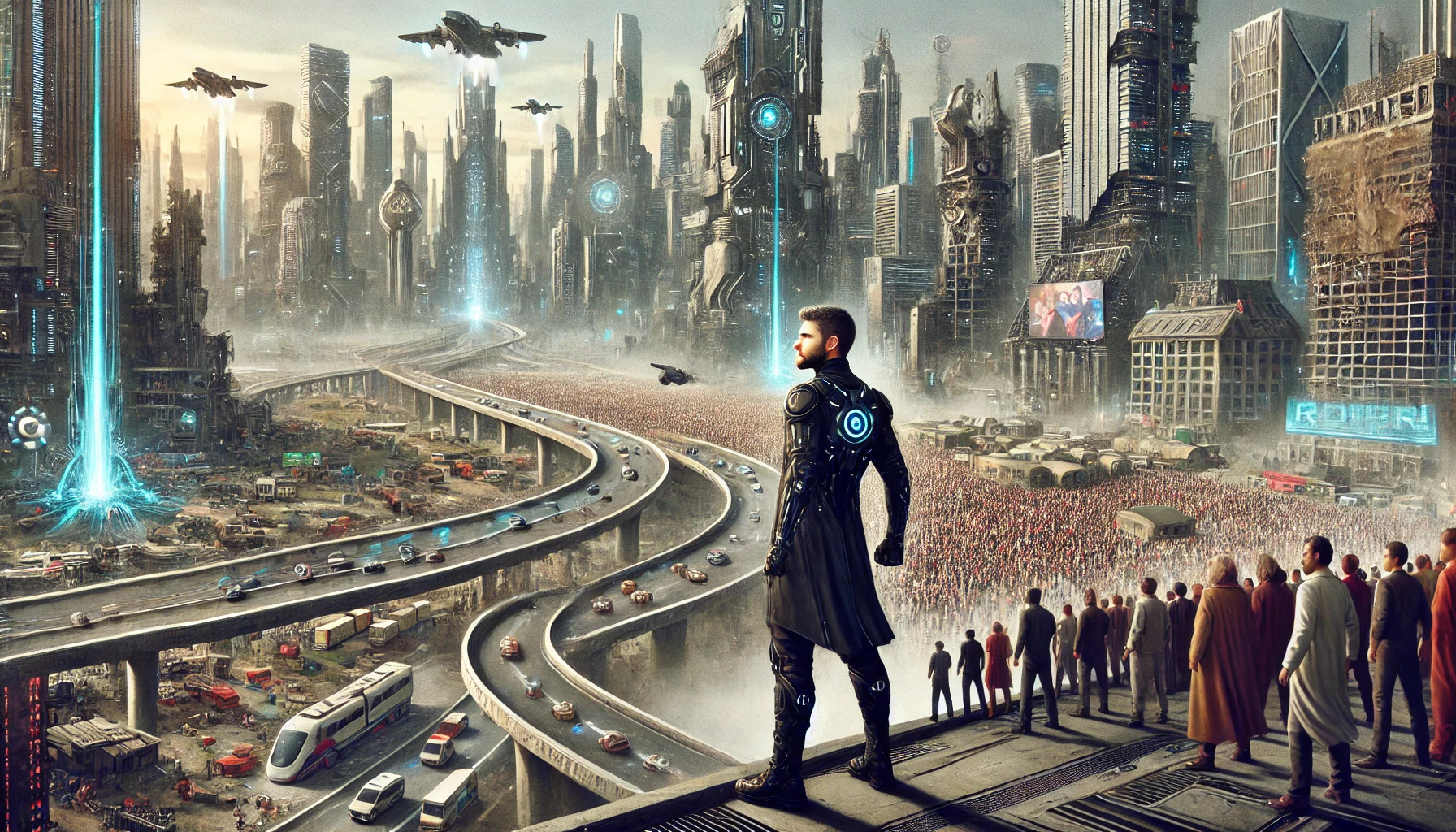The Last Man is a dystopian science fiction novel by Mary Shelley, published in 1826. Set in the late 21st century, it explores a future world ravaged by a plague that eventually leads to the near-extinction of humanity. The novel is narrated by Lionel Verney, the titular “last man,” and delves into themes of friendship, loss, and the inevitable decay of human society. Shelley’s work is a profound meditation on isolation and the fragility of human civilization.
Plot Summary
The sea had always whispered to those who would listen, and in a small, cloud-enshrouded land, Lionel Verney once roamed, untamed by the conventions of society. Born into obscurity, his childhood was marked by poverty and isolation, until fate brought him into the company of Adrian, the noble Earl of Windsor. Adrian was no ordinary man; he was the son of England’s last king, whose abdication had ended the monarchy, replaced by a republican government. Yet, Adrian carried none of his mother’s hunger for power. His soul was filled with gentleness, wisdom, and dreams of a better world, untouched by tyranny and bloodshed.
It was Adrian who transformed Lionel’s life. As boys, they forged a bond of deep friendship. Under Adrian’s tutelage, Lionel’s rough edges softened, his mind expanding through study and contemplation. This friendship set the stage for a life filled with noble aspirations, though darkness always lingered on the horizon, unnoticed in the bloom of youth.
At the heart of this circle of companions was Lord Raymond, a man of passionate ambition. He was a soldier, handsome and bold, who sought both glory and love in equal measure. His romantic entanglement with Perdita, Lionel’s sister, was as tumultuous as it was passionate. Perdita adored him with a fiery devotion, but Raymond’s thirst for power often led him astray. His greatest folly was his decision to leave Perdita and pursue military honor in Greece, a land ravaged by conflict. Yet, this ambition was not without cost. The political landscape of Europe trembled under revolution, war, and discontent, while their personal lives spiraled into emotional turmoil.
Adrian, on the other hand, remained a beacon of calm and idealism. He was deeply in love with his sister Idris, whose pure heart mirrored his own. Together with Lionel, Perdita, and Raymond, they formed a family bound by love, even as the world around them teetered on the brink of collapse. They lived for a time in an idyllic state, raising children, enjoying the beauty of nature, and reveling in intellectual pursuits. But beneath this surface of harmony, unseen forces were gathering.
A mysterious plague began to sweep across the globe, starting in the East and spreading westward like a shadow of death. At first, it seemed distant, an affliction that affected only far-off lands. But soon, it reached the shores of Europe, and there was no escaping its deadly grip. Entire cities were decimated, and once-thriving nations fell into ruin. As the plague advanced, panic gripped the people. Governments crumbled, and chaos reigned.
Amidst the terror, Adrian took on the mantle of leadership. Though he had long rejected the idea of ruling over others, his compassion and intellect made him the natural choice to guide what remained of England’s populace. Alongside him stood Lionel and the other surviving members of their circle. Together, they strove to maintain order, caring for the sick, and organizing the exodus of people to safer lands. But the plague was relentless. Even the most remote sanctuaries could not protect them from its reach.
Raymond’s fate was sealed when, defying Adrian’s warnings, he returned to Greece, driven by the delusion that his heroism could somehow alter the course of destiny. His death was swift and brutal, and it sent Perdita into a spiral of grief from which she could not recover. Her heart, once full of fire, was now cold with despair. She withdrew from the world, her soul shattered by the loss of her beloved Raymond.
As the plague tightened its grip, the survivors dwindled. Adrian led the last remnants of humanity on a desperate journey through the desolate lands of Europe, hoping against hope that some sanctuary might yet remain. They traveled from country to country, witnessing the collapse of civilization, the fall of cities once vibrant with life, now silent and lifeless. The once-thriving world became a vast graveyard.
Idris, ever the heart of their group, succumbed to the plague along the way, her death a cruel blow to Lionel. Her passing marked the beginning of the end for the fragile bonds that held the survivors together. Grief-stricken, Lionel pressed on, but his strength was fading. Perdita, too, could no longer bear the weight of the world’s suffering. One night, unable to endure her sorrow, she drowned herself in the depths of Lake Geneva, joining Raymond in the only solace she believed remained.
Now, only a few were left. Adrian, Lionel, and a small group of survivors made their final stand in Italy, a land once filled with art and beauty, now a wasteland. But the plague had no mercy. Adrian, the ever-noble leader, fell ill, and despite Lionel’s best efforts, he, too, died. With Adrian’s death, the light of hope extinguished. There were no more leaders, no more plans for salvation.
In the end, Lionel was truly the last man. Alone, he wandered through the ruins of once-great cities, across fields that no longer bloomed, and beside rivers that ran with the silence of death. He spoke to the wind, to the sea, to the earth, but no voice answered. The sun still rose and set, but it did so over a world devoid of human life. The stars blinked in the vast sky, indifferent to the solitary figure who now walked beneath them.
Humanity had fallen, not by war or revolution, but by the quiet, relentless force of nature. And in the end, the last man stood as a testament to the fragility of life, to the impermanence of all things. He was alone, but he carried within him the memories of a world that once was, a world filled with love, hope, and dreams.
He remained, waiting for the final breath of the earth itself, his voice swallowed by the eternal silence.
Main Characters
Lionel Verney – The novel’s protagonist and narrator, Lionel begins as a rebellious and unrefined youth but matures into a wise and thoughtful leader. His journey from a humble shepherd to the last surviving human reflects his growth in understanding love, friendship, and leadership.
Adrian, Earl of Windsor – The son of the last King of England, Adrian is a principled, philosophical idealist who dreams of a republican future. His noble spirit and vision make him a natural leader, but his inability to prevent the plague’s devastation underscores the novel’s tragic elements.
Lord Raymond – A charismatic and ambitious soldier, Raymond is deeply flawed but loved by many. His romantic relationship with Perdita and his decision to abandon her for a military career demonstrate his personal conflicts between love and ambition.
Perdita – Lionel’s sister, who marries Lord Raymond. Perdita is a sensitive and introspective woman, who suffers greatly from Raymond’s abandonment, embodying the theme of personal loss and emotional devastation.
Idris – Adrian’s sister and Lionel’s wife. Idris is loving, kind, and dedicated to her family. Her death during the plague marks a significant emotional turning point for Lionel.
Evadne Zaimi – A Greek princess and Raymond’s former lover, Evadne is proud, passionate, and politically astute. Her tragic demise during the plague reflects her unrelenting emotional intensity.
Theme
Isolation and Loneliness – The novel examines the emotional and physical isolation of its characters, culminating in Lionel Verney’s position as the last human alive. The theme is a reflection of both personal isolation and the broader isolation of humanity facing extinction.
Friendship and Loyalty – Deep bonds of friendship, particularly between Lionel, Adrian, and Raymond, are central to the narrative. These relationships are tested by political differences, personal ambition, and the encroaching disaster of the plague.
Decay of Civilization – Shelley’s vision of the end of human civilization through a global plague portrays the fragility of society. The once-thriving world is reduced to chaos, despair, and desolation, emphasizing the theme of humanity’s transient nature.
The Role of Nature – Nature, often depicted in a sublime and majestic form, becomes both a refuge and an indifferent force that outlasts humanity. Shelley contrasts the beauty of the natural world with the destruction of human society.
Fate and Free Will – The novel grapples with the tension between human agency and inevitable fate. Despite their best efforts, the characters cannot escape the plague, reflecting Shelley’s exploration of fatalism and the limits of human power.
Writing Style and Tone
Mary Shelley’s writing in The Last Man is imbued with the Romantic sensibilities of the time, characterized by elaborate descriptions of nature and deep emotional reflection. The tone is often melancholic, reflective of the personal and collective tragedies experienced by the characters. Shelley uses vivid imagery to depict both the grandeur of the natural world and the decay of human civilization. Her style is lyrical and introspective, offering a poetic meditation on loss and mortality.
The narrative voice is deeply personal, as Lionel Verney recounts his experiences with a poignant sense of grief and nostalgia. The novel’s tone shifts from the early optimism of youth and ambition to the despair of a world in decline, mirroring the emotional arc of the characters as they face the collapse of their society. The language is formal and rich, characteristic of 19th-century prose, with Shelley often drawing on classical references and philosophical musings to deepen the thematic resonance of the story.
We hope this summary has sparked your interest and would appreciate you following Celsius 233 on social media:
There’s a treasure trove of other fascinating book summaries waiting for you. Check out our collection of stories that inspire, thrill, and provoke thought, just like this one by checking out the Book Shelf or the Library
Remember, while our summaries capture the essence, they can never replace the full experience of reading the book. If this summary intrigued you, consider diving into the complete story – buy the book and immerse yourself in the author’s original work.
If you want to request a book summary, click here.
When Saurabh is not working/watching football/reading books/traveling, you can reach him via Twitter/X, LinkedIn, or Threads
Restart reading!


